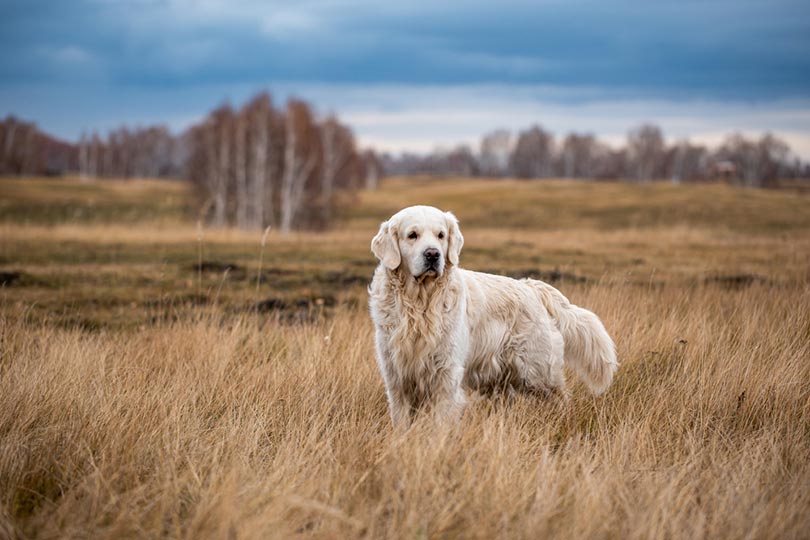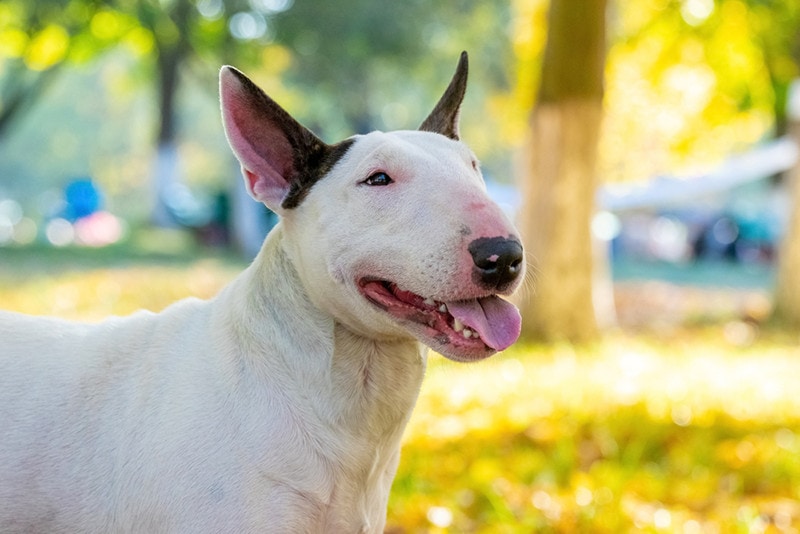Long-haired Labrador: Info, Pictures, Traits & Facts
Updated on
Click to Skip Ahead
Almost everyone is familiar with the Labrador Retriever: the most popular breed in the country for decades. They’re smart, friendly, and eager to please and are equally at home, serving as pets, guide dogs, detection dogs, and hunting companions. These pups may be a familiar sight, but did you know there’s such a thing as a long-haired Labrador?
Since they’re the result of a rare genetic combination, long-haired Labradors aren’t typical but have existed since the breed was first developed. Keep reading to learn more information, facts, and traits about the long-haired Labrador!
The Earliest Records of Long-haired Labrador in History
Because long-haired Labs are purebred Labrador Retrievers, there’s no separate breed record of them. The modern Labrador was developed from water dogs discovered in Canada by visiting rich, English hunters in the 1800s. When they brought some of the dogs back to England, breeders further developed the Labrador Retriever we know today.
It’s unknown exactly when the first long-haired Labradors were discovered. Nor does anyone know exactly how the recessive gene responsible for longer coats found its way into the Labrador gene pool. One theory is that early Labrador breeders used other, long-haired retriever breeds as part of their development, bringing the recessive version of the hair coat gene with them.
How the Long-haired Labrador Gained Popularity
The short, thick, weather-resistant version of the Labrador’s coat is part of the breed standard because of the original purpose of the dogs. Bred as water retrievers, specifically for cold weather and frigid lakes, Labs needed the right coat to keep them warm as they worked. The long-haired Lab coat is thinner and wavier, making it neither as warm nor as easy to keep clean.
When the Labrador served primarily as a working dog, breeders wouldn’t deliberately breed long-haired Labs because they weren’t as functional. Most breeders today still don’t because long-haired Labradors are not show-eligible.
However, most Labradors today serve primarily as family pets, not hunters or show dogs. Because of this, their coat type doesn’t matter as much. Long-haired Labs have become more popular as the breed itself has become the most popular dog in the U.S., a distinction held for over 30 years.

Formal Recognition of Long-haired Labrador
Labrador Retrievers were first formally recognized in the U.K. in 1903. The American Kennel Club accepted its first Labrador registration not long after, in 1917. Although their coats are outside of the breed standard, long-haired Labradors are still considered purebred dogs and are eligible for registration.
Long-haired Labrador Retrievers can’t compete in dog shows in the U.K., U.S., or Australia, despite their eligibility for purebred registration. They can be bred and registered by national registries, but many breeders won’t produce this variation on purpose.
Unfortunately, some dishonest breeders claim that mixed-breed, long-haired dogs are purebred Labs, and it’s important to exercise caution if you’re looking for a long-haired Labrador as a pet.
Top 3 Unique Facts About Long-haired Labrador
1. Their Coats Occur Naturally Thanks to Genetics
Long-haired Labrador Retrievers are the natural result of a rare, genetic pairing. The coat length of all dogs, including Labs, is controlled by a specific gene: FGF5. In Labs, the dominant trait of this gene is the short-haired version, while long hair is recessive.
Puppies inherit genes from both of their parents. Parents with two dominant genes (LL) only pass on the short-hair genes. However, parents with one dominant and one recessive (LI) can pass on the long-haired trait to their pups. If both parents have LI genes, some of the litter will receive two recessive genes (II) and grow long hair.

2. There’s a Genetic Test for the Long-haired Lab Gene
Because Labrador breeders usually prefer to avoid producing long-haired Labs, a genetic test is available that can tell them which genes the parent dogs possess. Anyone interested in breeding their Lab should consider having the test done unless they are okay with getting some fluffy pups. As long as at least one parent has only short-haired genes, the pups will come out with breed-standard Labrador coats.
3. They Shed a Lot!
Labradors are considered a heavy shedding breed, and the long-haired version is no exception. No matter their top coat length, all Labradors produce a thick, warm undercoat. They shed this full undercoat seasonally, typically in spring and fall, producing enormous amounts of hair.
Long-haired Labs also shed some fur year-round. Because their coats are longer and finer, they may need more brushing than short-haired Labradors to keep them tangle-free and clean.

Does Long-haired Labrador Make a Good Pet?
Their coats may look different, but in every other way, long-haired Labradors are typical of the breed that has topped the popularity charts in the U.S. since 1991. If you don’t need a well-insulated water retriever, long-haired Labs make wonderful pets. They are smart, friendly, loving, and energetic, as all Labs should be.
Although combining some recessive genes can result in deformities and health issues, the FGF5 gene is only responsible for hair growth. Because of this, long-haired Labs aren’t prone to health issues more than their short-haired relatives. If you think a Lab is a good fit for your household, there’s no reason a long-haired pup can’t be the pet for you!
Conclusion
Remember, just because a breed is popular doesn’t mean it is the right choice for every dog lover. Long-haired or short-haired, Labrador Retrievers are highly energetic and intelligent dogs that can easily develop behavior problems if they don’t get enough exercise, training, or attention. Those without the space, time, or energy to keep up with these pups should consider a different breed. Don’t be swayed by an adorable, fluffy baby Lab unless you’re prepared to commit to the rambunctious adult they will grow into.
Featured Image Credit: Pixel-Shot, Shutterstock












